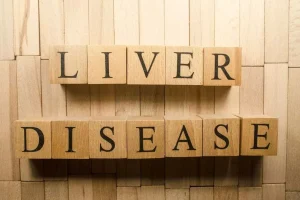
It’s best to talk to your doctor or medical provider before attempting cold turkey on your own. If you feel like your relationship with alcohol needs an overhaul, you’ve got plenty of company. Research shows that some damage to your brain, liver, heart, and https://ecosoberhouse.com/ gut done by alcohol will slowly heal when you stop drinking. While it’s true that alcohol withdrawal symptoms can be severe, they will not last forever. Once you get through that part of the process, you’ll start to feel better physically and mentally.
Tips For Quitting Alcohol

You can also find support in peer recovery groups like Alcoholics Anonymous (AA). There are also alternative options to AA if you are not looking for the traditional approach. Additionally, you can join social media groups, forums, or virtual support meetings if you can’t always make it to in-person ones. These online groups can be a great alternative for those who work odd hours, have mobility issues, or lack transportation.
Online Alcohol Treatment through Ria Health
Alcoholic beverages are a source of added sugar and empty calories. Binge drinking can lead to consuming an extra 600 calories or more in a day. There are certain brain chemicals called excitatory neurotransmitters that will stop doing their job when you drink, which can make you feel sleepy and sedated. One of the most profound ways that alcohol affects you is through what it does to your body.
Health Risks of Alcohol Use
Some people will aim to quit drinking immediately, while others will want to cut back over time. In any case, setting clear goals—whether that means abstinence or tapering with weekly milestones—can serve as a guide for quitting. However, it’s best to talk to your doctor if you plan on quitting abruptly (cold turkey), as alcohol withdrawals can be dangerous for some. If you are drinking five or more drinks a day, it is unsafe to quit abruptly on your own, putting yourself at risk of medical complications such as an alcohol withdrawal seizure.

Talk to Your Doctor
- Suddenly quitting alcohol can lead to withdrawal symptoms, which can be dangerous if you have been drinking heavily for a long period of time.
- Some will eventually get broken down into less harmful compounds, but your body’s ability to process these substances is limited.
- Often, people with alcohol use disorder find that other people in their lives spot their addiction long before they do.
- Use these tried-and-true tips to quit or reduce your alcohol intake.
- People may also decide to speak with a doctor about effective strategies.
There are many things that can affect your sleep—physically and mentally. But there are also things you can do to cope and improve your sleep. Alcohol use and poor sleep are closely linked because alcohol messes with your sleep-wake cycle. “These improvements can be observed not only in people who abstain from alcohol tips to quit drinking but in people who reduce heavy drinking,” Volpicelli says. Volpicelli says that some of the negative effects of alcohol on mental health can be reversed if you stop drinking. People who drink heavily are about twice as likely to have a cardiovascular event within 24 hours than people who do not drink at all.
It can be tempting to just “rip off the Band-Aid” when getting sober, but tapering off alcohol is often much safer—and much less stressful. Rather than quitting drinking abruptly (or “cold turkey”), many professionals recommend gradually reducing your drinking (or tapering) over time. This can give your body the chance to adjust, helping you avoid the worst of withdrawal symptoms.

Trouble sleeping is common after you stop drinking, especially early in recovery. But the longer you abstain from alcohol and work on your sleep hygiene, the more improvements in your sleep you’ll see over time. If you’ve stopped drinking and still can’t sleep, talk to your provider.